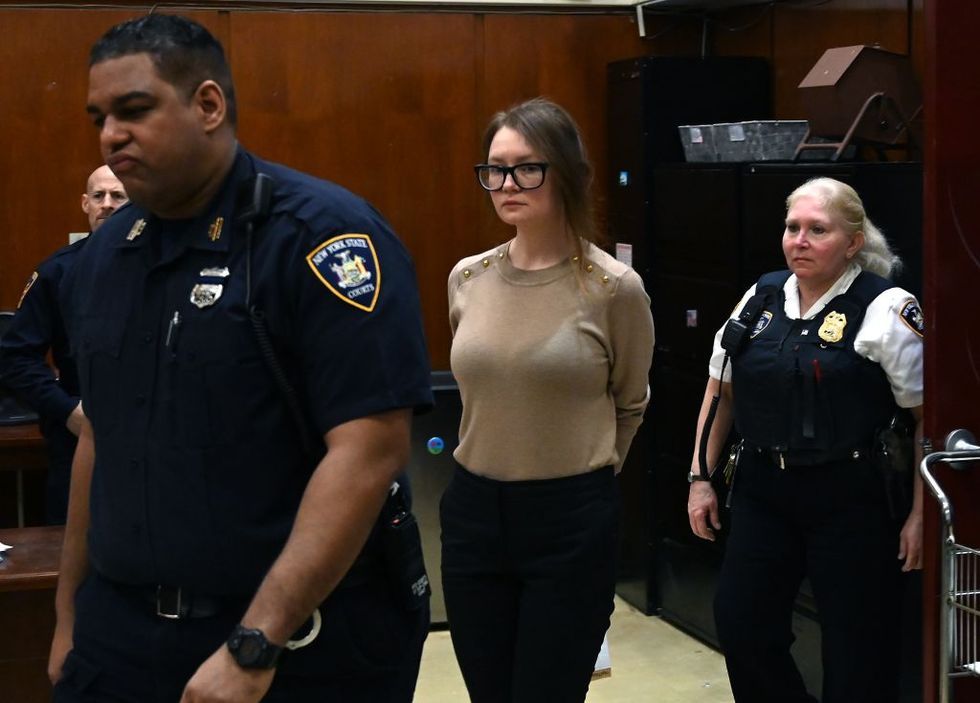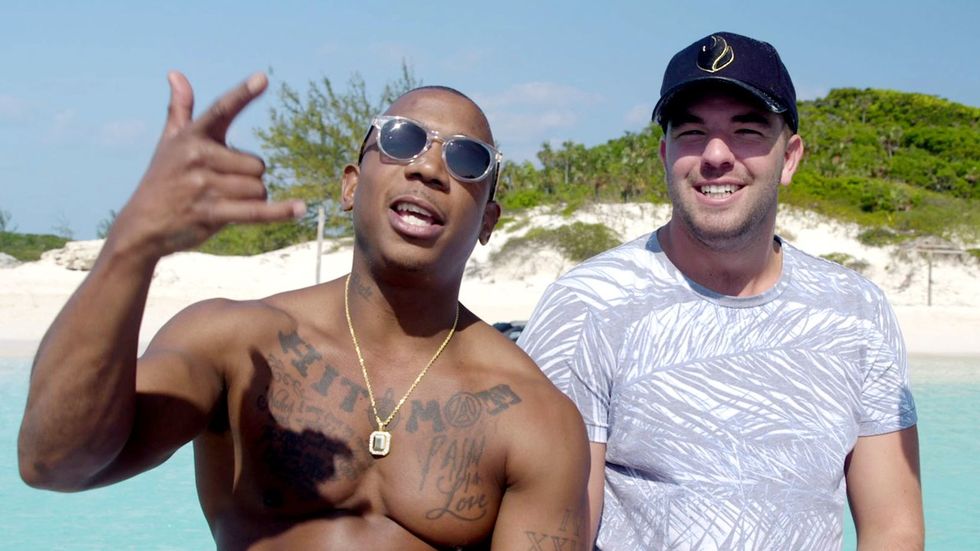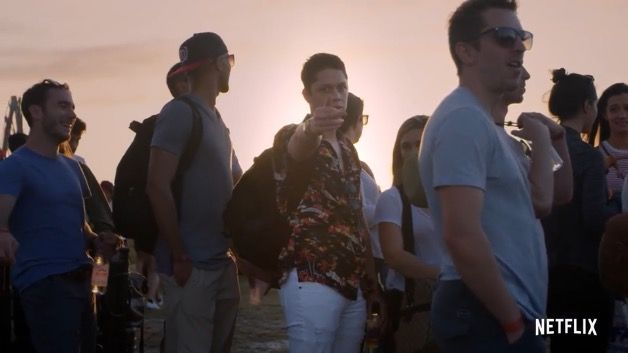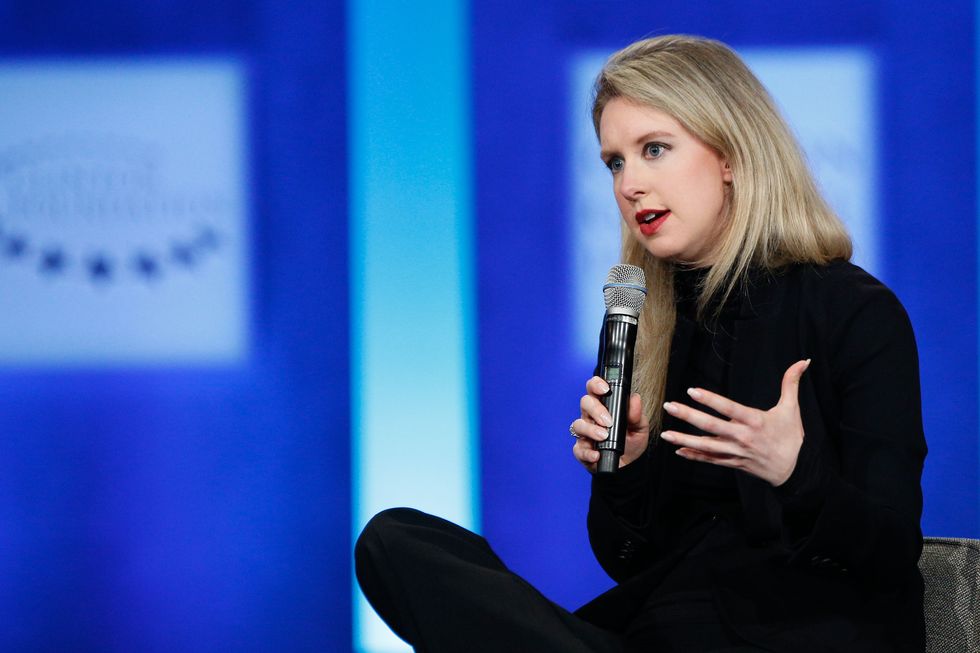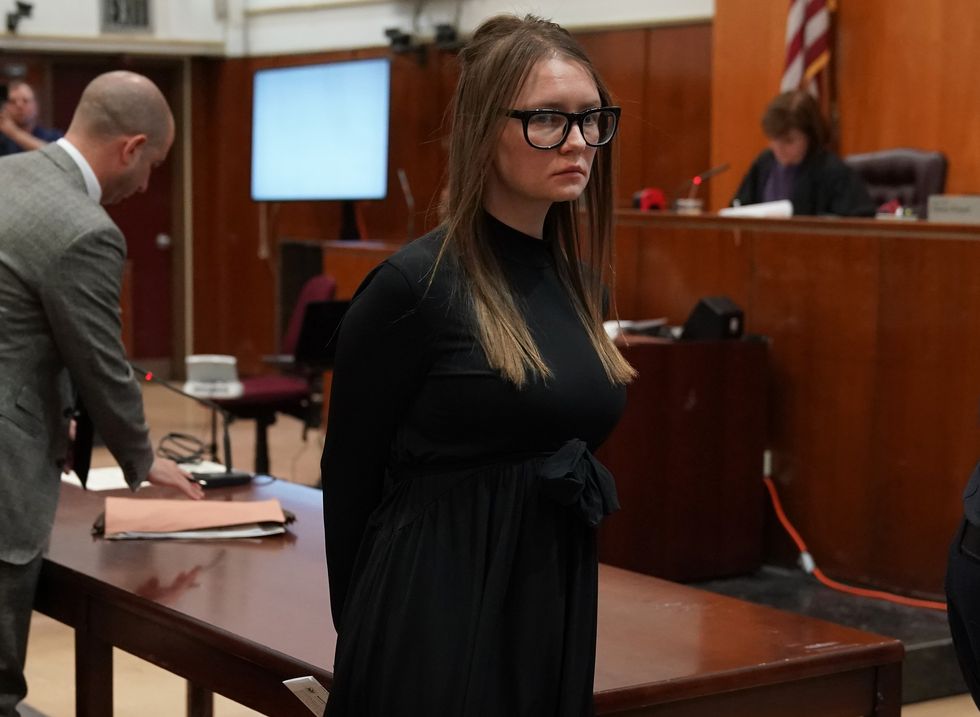The trajectory of the scam artist that we expect, and secretly hope for, is a steep plummet as their house of cards collapses and justice is served. As New Yorker writer Jia Tolentino wrote in June last year, "we want the failure of our scammers to seem inevitable". And yet, the recent emergence of the celebrity scammer means that even as fraudsters testify in court, there's still bank to be made from a glitzy streaming service deal.
This week, New York’s attorney-general ruled that fake German heiress Anna "Delvey" Sorokin, a Russian woman posing as a New York socialite, who was the subject of a viral exposé by New York Magazine, must use the funds from a lucrative Netflix deal to repay her victims.
The rights to an on-screen adaptation drew a number of bids from Hollywood, with The Times reporting that Sorokin, "struck a deal with Netflix worth an initial $100,000, plus tens of thousands of dollars for 'consulting services' and royalty rights," while awaiting trial at Rikers Island jail.
It's hard to fathom how con artists could see their pyramid of lies come tumbling down, and still care about keeping their publicity train chugging along. But then, of course, it's this blinding self-belief, and total lack of imposter syndrome, that lit their way all along.
By now, Delvey's path from grifter to guru is becoming increasingly familiar, as the stories of swindlers set the internet alight, and television networks and streaming platforms move in to get a piece of the action.
It began with the internet-breaking story of Fyre Festival founder Billy McFarland, the Bernie Madoff of the luxury festival circuit who charged punters thousands to attend an influencer-approved kick back in the Bahamas, and greeted them with disaster relief tents and styrofoam boxes of plastic cheese sandwiches.
Panic-stricken tweets of the tragic event caused a global spike in schadenfreude, and birthed endless think pieces about influencer responsibility, the fetishisation of wealth, and the cult of the scam artist. McFarland's number appeared to be up, as he faced charges of wire fraud for Fyre Festival and a subsequent scam, and yet, with that same plucky entrepreneurial spirit, he struck an exclusive deal with Hulu for a documentary, Fyre Fraud, before being incarcerated in Orange Country, New York.
It was one of two competing documentaries released in one week about the non-existent festival, the other of which was Netflix's FYRE: The Greatest Party That Never Happened, which interviewed the members of Fuck Jerry Media behind the disastrous event. Many compared the ethics of each, though both were clearly somewhat compromised by airing the accounts of those responsible for the mess.
These documentaries are often under pressure to catch the spike in online interest, and so, instead of stepping back to clearly weigh up the evidence, they go with the version of events from the people who did the damage, further diminishing the victims of the story. From an entertainment point of view, having the villainous figures everyone recognises telling the story is far more exciting than a a neutral point of view which holds them at arms length.
What is it that made Holmes, Sorokin, or McFarland so special that they convinced everyone they could deliver the impossible? Whatever it is, their talent for fantastical fiction is something people want to witness first hand. They want a ring-side seat to the scammer themselves over cold analysis from unknown faces.
This was part of the problem with Alex Gibney's HBO documentary, The Inventor: Out for Blood in Silicon Valley. The film about Elizabeth Holmes, the disgraced founder of fake blood-testing company Theranos, lacked enough insider accounts to demystify what made Holmes so convincing that people handed over their blood to her. The footage of Holmes used didn't offer any further explanation, as a Guardian review reported, it made her, "impossible to differentiate from a hundred TED Talk hucksters."
Still, Gibney's documentary was a measured recounting of events, which may not be the case for the two forthcoming dramatisations of Holmes' story: Hulu film, The Dropout, starring Kate McKinnon as Holmes, and Adam McKay-directed film, Bad Blood, with Jennifer Lawrence playing the Theranos founder.
The ruling that Anna Sorokin will be forced to give funds from Netflix to victims is a small but triumphant derailing of the gravy train celebrity scammers are riding, but our willingness to listen to their side of the story, even knowing they are clearly deluded, speaks something to the icons we make out of those who game the system.
The other side of the 'Anna Delvey' story will be told by Rachel Williams, the Vanity Fair photo editor who Sorokin duped into a supposedly all-expenses paid trip to Marrakesh, and then left her with a $60,000 bill. Williams sold her story for ten times that, with a book due this month, and HBO adaptation to follow. Even in unlikely places, the spirit of the hustle lives on.
Like this article? Sign up to our newsletter to get more articles like this delivered straight to your inbox

